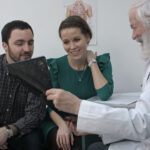
Categories
- Alcohol (9)
- Detox (9)
- Drugs (31)
- Life After Rehab (23)
- Media Coverage (1)
- Mental Health (65)
- Miscellaneous (13)
- News (2)
- Sobriety (34)
- Treatment (66)
Recent Posts
- Recognizing the Signs of Inhalant Addiction and Finding Help in CaliforniaSeptember 26, 2025
- Sedative and Benzodiazepine Addiction: Symptoms, Risks, and TreatmentSeptember 18, 2025
- Withdrawal Management 101: Expert Tips to Navigate Early RecoverySeptember 9, 2025
- Recognizing the Signs of Inhalant Addiction and Finding Help in California
-





